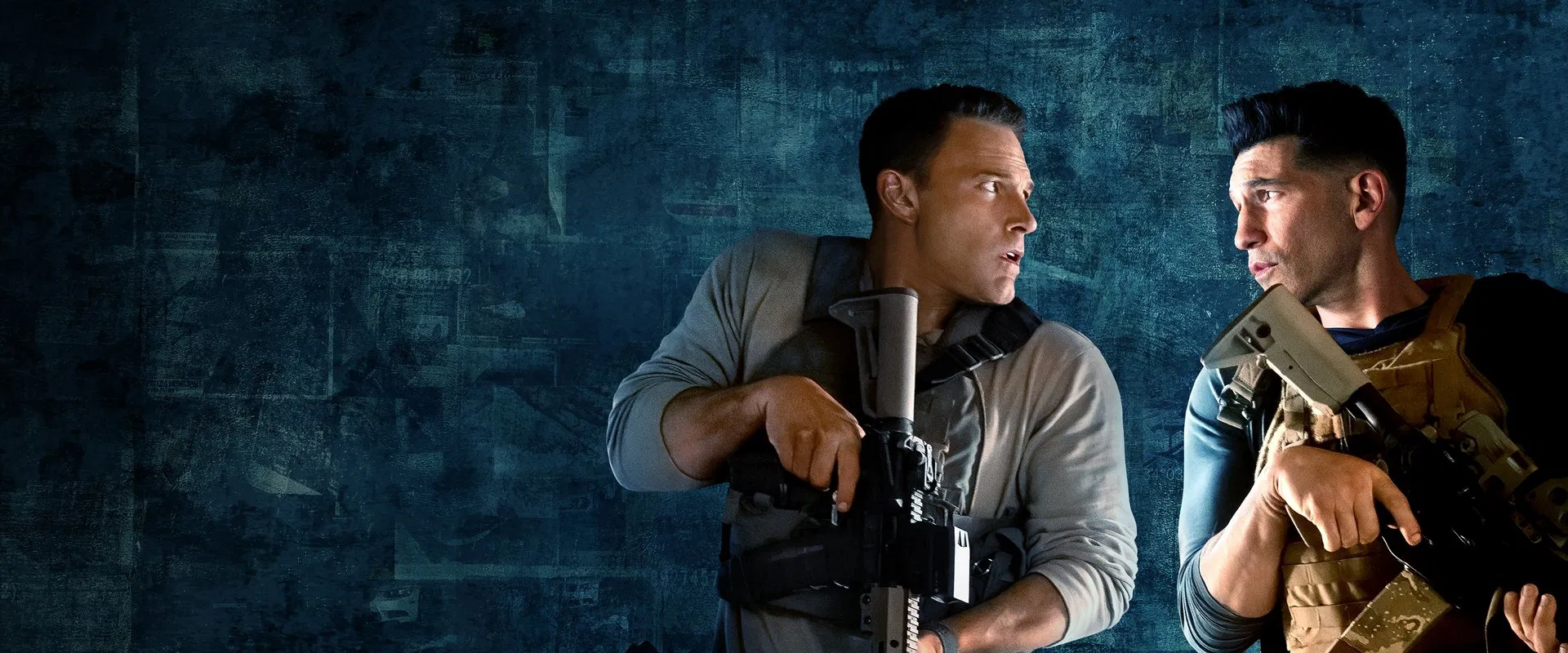There’s a special kind of letdown reserved for sequels to movies that had no business being as bracing as they were. The Accountant (2016) was, in its own chilly way, a genre cocktail so sharp it could clean wounds, a pulpy thriller where Ben Affleck’s Christian Wolff moved through the world with the precision of a human abacus lashed to a suppressed scream. The violence, when it landed, felt both willed and suffered; every bruise, a mark on his actuarial soul. It was a film content to be odd, morose, even embarrassing in its sincerity, neurosis and action stitched together with genuine ache for difference.
And now… the sequel. The Accountant 2 (should the name ever have an honest subtitle, it’s “Bigger, Louder, Number-Crunchier”) is what happens when the secret ingredient is mistaken for a market trend. Hollywood can’t help itself, given enough time and corporate interest, even damaged solitude gets scaled up to franchise spectacle. The film opens, quite literally, into a bat cave for the super-gifted, as if Christian Wolff, that heartbreakingly literal loner, had cracked his own skull and let a marketing strategy crawl out. The result wants to be awe-inspiring, but is as synthetic as the backlit monitors blinking their coded dreams, that franchise fever where specificity is the first casualty.
Ben Affleck, once so coiled that casual small talk looked like physical pain for him, now glides through the role in tailored banality. It’s not simply that he’s softened with age, aging could have been poignant, but that his edges have been planed away until there’s nothing left for the movie to chafe against. Once, Christian’s violence felt like an act of survival, equal parts taboo and confession; now, he’s an action figure with ergonomic grip, a smooth surface for storyboarding gunfights. The filmmakers have mistaken idiosyncrasy for a production hiccup, so they’ve been sanded down, packaged, and shelved. The cost of killing flickers out; the blood wipes clean.
The unease only compounds with the film’s big “evolutionary” swing, a syndicate of autistic prodigy children, hacking and capering in a lair, presided over by Christian as a sort of grim Professor X. There’s an almost parodic grandiosity to it: you half-expect a caped crusader to saunter in and offer everyone toys branded with the DSM-V. Social “representation” here isn’t a matter of lived experience but of genre bookkeeping, as if Hollywood were pitching us the Autism Cinematic Universe. All quirks are collectivized, all difference retrofitted as superpower. The shadings and fretwork of the first film, the cost, the loneliness, the survival, are now plot devices. In other words: it’s not representation, it’s franchisable “specialty.”
Through all this, only Jon Bernthal rouses something like a pulse. He isn’t just acting in a different idiom; he might as well be in a different film. As Braxton, Affleck’s unreconciled brother in both blood and pain, he vibrates with a static unpredictability that threatens, at moments, to break the movie’s fever. The chemistry between Affleck’s reticent martial accounting and Bernthal’s too-tender volatility is the one living cell in this otherwise plastic organism, almost, almost enough to suggest a soulful, bruised road movie about brothers. But the director, perhaps terrified that something human might break out across the set, shunts such possibility aside. The rest of the cast might as well be holograms.
Director Gavin O’Connor manages the action with the sterile competence of a man who’s pre-visualized every shot within an inch of its meaning, no sweat, no surprise, just contractual trigger-pulling. The violence once carried a taboo shiver; here it’s all clean exits and digital satisfaction. By the time traffickers and gangland goons start reciting their anxieties with the solemnity of a local news scare-piece, the film’s nods to social relevance dissolve into procedural garnish.
I want to believe that some echo of the first film’s odd, searching pulse might survive beneath this fluorescent carapace. I went in as a loyalist, greedy for another lesson in coping with a world rigged for the neurotypical, a little suffering, a little grace in the margins. Instead, I got toyetic spectacle, weapons-grade message-mongering, difference rendered as franchise schematic. The spectacle of the “bat cave,” full of hacking wunderkinds, is so grandiose it lapses into self-parody, all the while mistaking enlargement for depth.
What lingers isn’t outrage so much as bewilderment, a sense that the system can’t metabolize anything odd or singular without diluting it to residue. Hollywood, when tasked with the strange, can only ask: how soon till the spin-off? How many seats can we fill with this?
If there is a lesson here, it’s that the rare, unsettling chord of individuality can’t be sampled for mass production, not without losing the very vibration that made us care. The Accountant 2 stands less as a story continued than a mood board for sequels yet to be green-lit. The afterimage? Not a bruise, not even a memory, just the empty glare left from staring too long at a bank of unattended monitors.


